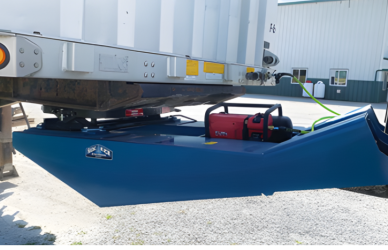The Inspection Selection System Score, commonly referred to as the “ISS Score,” was established by the Federal Motor Carrier Safety Administration (FMCSA) to assist law enforcement officers in determining whether a truck should undergo inspection. This score plays a crucial role in the trucking industry, influencing whether a truck is subject to inspection or is granted a bypass command.
The ISS Score often sparks confusion, however, with many misconceptions regarding its relationship with the CSA score, which identifies high-risk motor carriers based on driver performance data. In this article, we will discuss the ISS Score, how it is calculated, what it means for truck drivers, and how to access this valuable information.
Understanding the ISS Score
The ISS Score is derived from a combination of various categories known as the Behavior Analysis and Safety Improvement Categories (BASICs) within the CSA program. These categories encompass:
- Unsafe Driving
- Hours of Service (HOS)
- Driver Fitness
- Controlled Substances and Alcohol
- Vehicle Maintenance and Cargo
- Hazardous Material
These categories are carefully evaluated to determine a carrier’s overall inspection rating, which ranges from zero to 100. Similar to the CSA score, a lower ISS Score is preferable, as it indicates a better safety record and a reduced likelihood of inspections.
Factors Influencing ISS Scores
Understanding how each CSA category contributes to your ISS Score is crucial. For instance, violations related to Unsafe Driving can include speeding, reckless driving, or failure to use seat belts, all of which significantly impact your ISS Score. Similarly, exceeding hours of service limits, inaccurately logging driving hours, or failing to maintain accurate records can negatively affect your Hours of Service category. By comprehending how specific violations or incidents in each category contribute to your ISS Score, carriers and drivers can take proactive measures to address potential issues and improve their overall safety performance.
Impact of ISS Scores on Carriers
The impact of ISS Scores on carriers goes beyond mere numbers. A high ISS Score can result in more frequent inspections during roadside stops, leading to operational disruptions, potential fines, and a tarnished reputation. Shippers and customers often take ISS Scores into account when selecting carriers, meaning that a high score can hinder a carrier’s ability to secure desirable contracts. Conversely, a low ISS Score can translate to smoother operations, fewer inspections, and a competitive edge in the market. Understanding this impact underscores the importance of actively managing and improving ISS Scores.
Improving ISS Scores
To enhance ISS Scores, carriers and truck drivers can implement several strategies. Regular vehicle maintenance, including timely inspections and repairs, is critical for the Vehicle Maintenance and Cargo category. Driver training programs, emphasizing safety and compliance, can help improve Driver Fitness and Unsafe Driving scores. Carriers should also ensure that their drivers adhere to hours of service regulations, using Electronic Logging Devices (ELDs) to monitor and record driving hours accurately. Additionally, fostering a culture of safety within the organization and maintaining open lines of communication with drivers can contribute to sustained ISS Score improvement.
Legal and Regulatory Compliance
ISS Scores are intrinsically linked to legal and regulatory compliance in the trucking industry. Failing inspections can lead to not only fines but also legal consequences for carriers and drivers. Carriers must be vigilant in adhering to federal regulations and state-specific requirements to maintain a favorable ISS Score. Legal compliance not only safeguards against penalties but also helps build a solid foundation for long-term success in the industry.
ISS Score Categories
ISS Scores are categorized into three groups, each influencing the frequency of inspections:
- Inspect (75-100): Carriers falling within this range are more likely to face inspections. A high ISS Score in this category raises the probability of an inspection during a roadside stop.
- Optional (50-74): Carriers in this category have a moderate ISS Score, which means they might be subject to inspections, but it’s not as frequent as those in the “Inspect” category.
- Pass (1-49): Carriers with an ISS Score in this range are less likely to undergo inspections. A lower ISS Score signifies a stronger safety record and a reduced likelihood of inspections.
How to Access Your ISS Score
Truck drivers and carriers can easily access their ISS Scores through the FMCSA’s online portal. Here’s a step-by-step guide:
- Log in using your DOT-issued PIN.
- Navigate to the “Company Information” section on the main screen.
- Look for the blue button labeled “Inspection Selection System (ISS) Info” and click on it.
The ISS Score is a vital component of the trucking industry, impacting the likelihood of inspections for carriers. While often confused with the CSA score, it focuses on various safety categories to assess a carrier’s safety record. Carriers can access their ISS Scores through the FMCSA’s online portal, allowing them to stay informed and work towards improving their safety standings. Understanding the ISS Score is not just about compliance; it’s about ensuring the safety of truck drivers and everyone on the road, making it an essential tool in the trucking industry’s ongoing commitment to safety.











